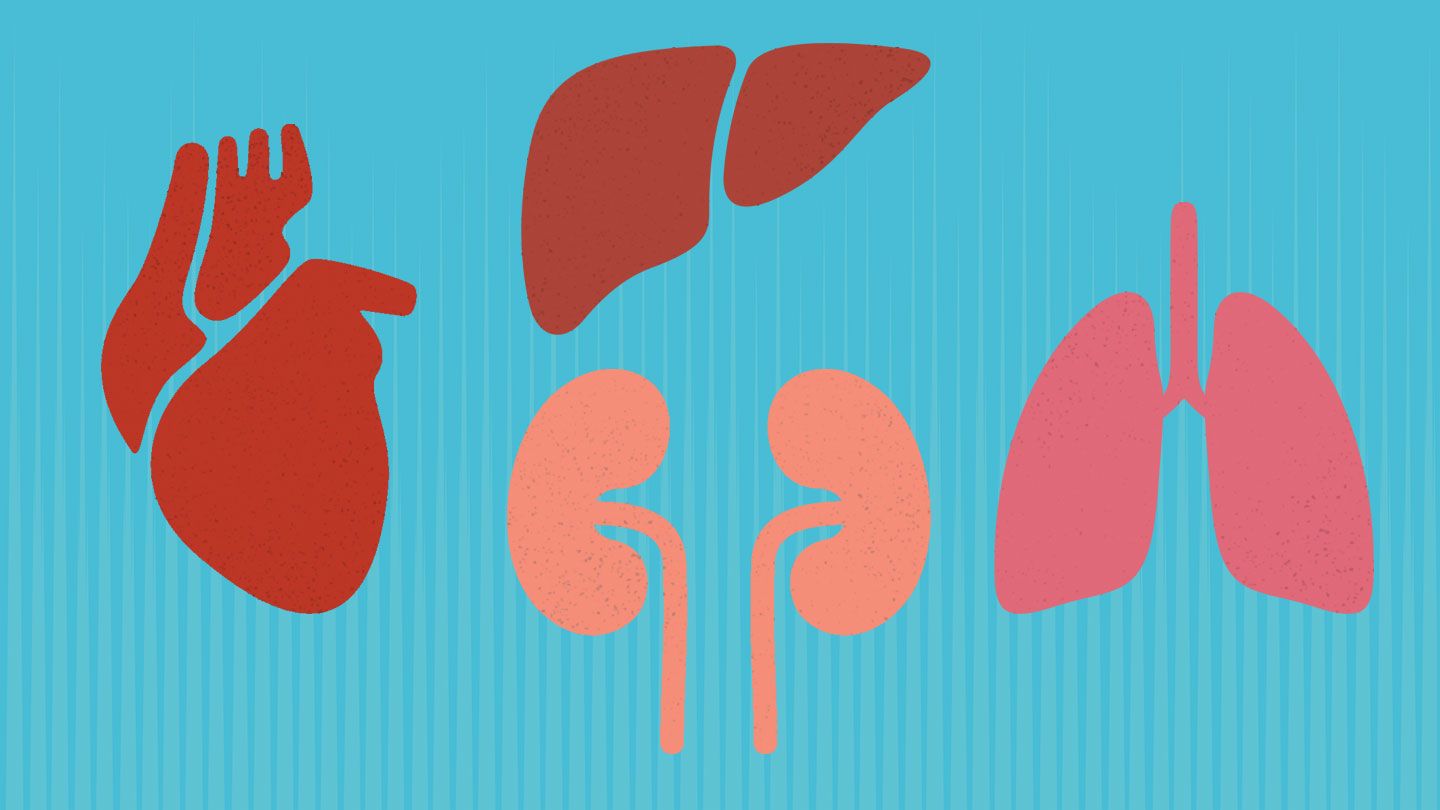
10 Essential Facts Your Doctor May Not Share About Organ Transplants
Organ transplantation can extend and improve lives, with over 39,000 successful transplants completed in 2020 alone. However, there are critical aspects that both donors and recipients should understand about the process.

Internal organs illustration on blue
Key Facts About Organ Transplants:
- Limited Organ Lifespan
- Transplanted kidneys last 10-13 years (living donor) or 7-9 years (deceased donor)
- Liver functions for 5+ years in 75% of recipients
- Heart median survival: 12.5 years
- Pancreas: approximately 11 years
- Lungs: 5 years (single) or 8 years (double)
- Health Risks
- 1% risk of transmitted infections
- Screening processes minimize but don't eliminate risks
- Potential for rare disease transmission (West Nile virus, rabies, COVID-19)
- Pre-existing conditions like hepatitis C can be managed with treatment
- Financial Considerations
- Living donors face average out-of-pocket costs of $5,000-$20,000
- Surgery costs covered for donors
- Assistance programs available for donation-related expenses
- Insurance complications may arise for living donors
- Wait Times and Accessibility
- Median kidney transplant wait: 3.6 years
- Geographic location affects wait times
- Southeast U.S. has longest kidney transplant waits
- New allocation system coming to reduce geographical disparities
- Important Factors Affecting Eligibility
- BMI requirements (typically under 30)
- Women face additional challenges due to immune system sensitization
- Previous pregnancies can affect matching success
- Location impacts organ availability
Additional Considerations:
- Organ trafficking risks in international transplant tourism
- Living donor insurance complications
- Need for ongoing medical management
- Importance of early transplant discussions for kidney failure patients
Current State of Organ Donation:
- 107,000 people on waiting lists (as of February 2021)
- 80% await kidney transplants
- 17 Americans die daily waiting for organs
- 165 million registered donors in U.S.
- One deceased donor can save up to eight lives
For optimal outcomes, patients should discuss all options with their healthcare team and understand both the benefits and challenges of organ transplantation.
Related Articles

White Lotus Season 3 Spotlights Lorazepam Misuse and Its Dangers

